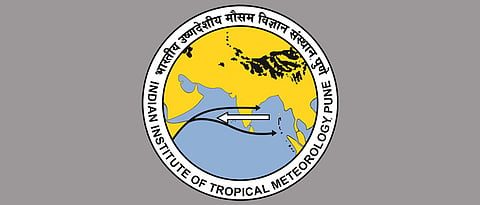

PUNE: Teleconnection between two geographical areas, namely the eastern ghats and north Pakistan can help predict dates of monsoon onset and withdrawal, said Elena Surovyatkina, Professor at Potsdam Institute for Climate Impact Research, Germany, and a leading researcher at Space Research Institute of Russian Academy of Sciences, Moscow, Russia.
She was in the city on Friday for delivering a scientific lecture organised by Indian Meteorological Society, Pune Chapter and Indian Institute of Tropical Meteorology (IITM) Pune. IITM, Pune Director, Ravi Shankar Nanjundiah, R Krishnan from Indian Meteorological Society, Pune Chapter and others were present on the occasion.
‘Predicting onset and withdrawal of Indian Summer Monsoon: Observational evidence for results of Tipping elements approach’ was the topic of the lecture.
“To estimate the time of onset and withdrawal of monsoon we have an approach based on teleconnection between two geographical areas - the eastern ghats and north Pakistan which we define as tipping elements of Indian summer monsoon,” said Surovyatkina.
She said these tipping elements approach allows one to predict monsoon onset and withdrawal 40 to 70 days in advance.
However, she clarified that prediction is based on observational data only when the model cannot accurately anticipate the transition.
“This method allows predicting monsoon not only retrospectively that is over the period 1951-2015 but also in the future. In 2016 and 2017 we proved that such early prediction of the monsoon timing is possible,” said Surovyatkina.
She said in her study of the Indian monsoon season, she found evidence in observational data that can be considered onset of monsoon as a critical transition, a sudden transition to the monsoon when critical thresholds in near-surface air temperature, relative humidity are reached.
“This finding allows us using the critical transition theory for developing the tipping elements approach for prediction of onset and withdrawal dates of the summer monsoon,” said Surovyatkina.esearch, Germany, and a leading researcher at Space Research Institute of Russian Academy of Sciences, Moscow, Russia.
She was in the city on Friday for delivering a scientific lecture organised by Indian Meteorological Society, Pune Chapter and Indian Institute of Tropical Meteorology (IITM) Pune. IITM, Pune Director, Ravi Shankar Nanjundiah, R Krishnan from Indian Meteorological Society, Pune Chapter and others were present on the occasion.
‘Predicting onset and withdrawal of Indian Summer Monsoon: Observational evidence for results of Tipping elements approach’ was the topic of the lecture.
“To estimate the time of onset and withdrawal of monsoon we have an approach based on teleconnection between two geograhical areas - the eastern ghats and north Pakistan which we define as tipping elements of Indian summer monsoon,” said Surovyatkina.
She said these tipping elements approach allows one to predict monsoon onset and withdrawal 40 to 70 days in advance.
However, she clarified that prediction is based on observational data only when the model cannot accurately anticipate the transition.
“This method allows predicting monsoon not only retrospectively that is over the period 1951-2015 but also in the future. In 2016 and 2017 we proved that such early prediction of the monsoon timing is possible,” said Surovyatkina.
She said in her study of the Indian monsoon season, she found evidence in observational data that can be considered onset of monsoon as a critical transition, a sudden transition to the monsoon when critical thresholds in near-surface air temperature, relative humidity are reached.
“This finding allows us using the critical transition theory for developing the tipping elements approach for prediction of onset and withdrawal dates of the summer monsoon,” said Surovyatkina.
Professor Elena Suroyatkina was in the city on Friday for delivering a scientific lecture organised by Indian Meteorological Society, Pune Chapter and Indian Institute of Tropical Meteorology (IITM) Pune. IITM, Pune Director, Ravi Shankar Nanjundiah, R Krishnan from Indian Meteorological Society, Pune Chapter and others were present on the occasion.
